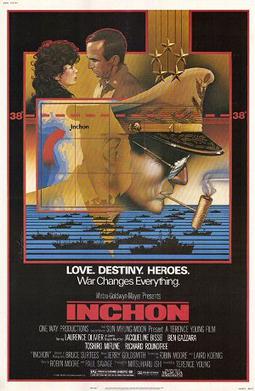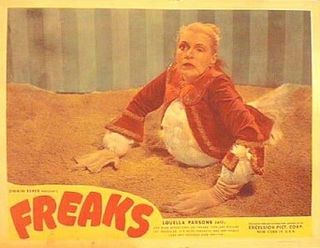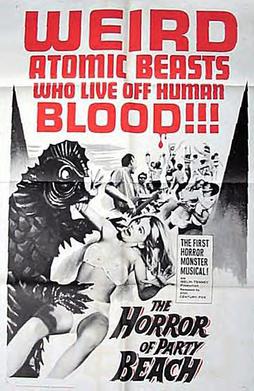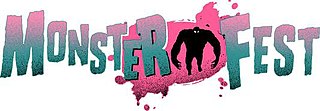This article needs additional citations for verification .(February 2024) |
The Worst of Hollywood was a 1983 television series presented by Michael Medved and screened on Channel 4. [1]
This article needs additional citations for verification .(February 2024) |
The Worst of Hollywood was a 1983 television series presented by Michael Medved and screened on Channel 4. [1]
Following the success of his Golden Turkey Awards books Medved had become a popular guest on British TV chat shows. The series screened late on a Friday night in what became established as Channel 4's slot for 'post pub television'. In each programme, Medved would introduce that week's B movie with a comedic lecture to a studio audience pointing out flaws in the film and relating funny stories about the production. [2] This format contrasted with the established 'high art' approach to presenting cinema of the BBC channels. Following a commercial break, the film would be shown with humorous subtitles and captions pointing up poor special effects and dialogue.
The featured films were:
After the film, Medved would return with a short summary concluding each week with ..the worst is yet to come.
Medved's opening lectures usually followed the line that there was only a narrow distinction between critically panned films such as these and the types of films Hollywood continued to produce.
The series was produced by Stephen Woolley, with the opening lectures being filmed at the Scala Cinema he owned and managed. The commercial breaks usually featured adverts for cult films being distributed by Woolley's Palace Video.
The ten-week run was preceded by a one-hour documentary presented by Clive James, who was already established as Channel 4's critic in residence and featuring Medved as an expert. The documentary included clips from more cult and underground films that UK television could not screen at that time.
The popularity of the series encouraged the Channel to embrace programming more Cult film and commission similar late night strands presented by Jonathan Ross.

A movie theater, cinema, or cinema hall, also known as a movie house, picture house, picture theater or simply theater, is a business that contains auditoria for viewing films for public entertainment. Most are commercial operations catering to the general public, who attend by purchasing tickets.

TG4 is an Irish free-to-air public service television network. The channel launched on 31 October 1996 and is available online and through its on demand service TG4 Player in Ireland and beyond.

William Washington Beaudine was an American film director. He was one of Hollywood's most prolific directors, turning out films in remarkable numbers and in a wide variety of genres.

An exploitation film is a film that tries to succeed financially by exploiting current trends, niche genres, or lurid content. Exploitation films are generally low-quality "B movies", though some set trends, attract critical attention, become historically important, and even gain a cult following.

AMC is an American multinational basic cable television channel that is the flagship property of AMC Networks. The channel's programming primarily consists of theatrically released films, along with a limited amount of original programming. The channel's name originally stood for American Movie Classics, but since 2002 the full name has been de-emphasized as a result of a major shift in its programming.

Turner Classic Movies (TCM) is an American movie-oriented pay-TV network owned by Warner Bros. Discovery. Launched in 1994, Turner Classic Movies is headquartered at Turner's Techwood broadcasting campus in the Midtown business district of Atlanta, Georgia.

The ABC Sunday Night Movie is a television program that aired on Sunday nights, first for a brief time in 1962 under the title Hollywood Special to supposedly replace an open time slot for the TV show Bus Stop, which was cancelled after March 1962. It then began airing regularly under its more commonly known title from late 1964 to 1998, on ABC. Since 2004, it has aired sporadically as a special program, now titled the ABC Sunday Movie of the Week, though as of the 2011-12 television season, the only films in this timeslot were aired under the Hallmark Hall of Fame banner, which transferred to ABC in that season. However, in 2014, The Hallmark Hall of Fame moved exclusively to cable on the Hallmark Channel. As a result of this, the Sunday Night Movie is now exclusively relegated to two special holiday movies, The Sound of Music every holiday season and The Ten Commandments every Easter.

Inchon is a 1981 war film about the Battle of Inchon, considered to be the turning point of the Korean War. Directed by Terence Young and financed by Unification movement founder Sun Myung Moon, the film stars Laurence Olivier as General Douglas MacArthur, who led the United States' surprise amphibious landing at Incheon, South Korea in 1950, with Jacqueline Bisset, Ben Gazzara, Toshiro Mifune and Richard Roundtree.

The Fifty Worst Films of All Time (and How They Got That Way) is a 1978 book by Harry Medved with Randy Dreyfuss. Despite its broad title, it presents the authors' choices for the 50 worst sound films made or distributed in the United States. Each film's entry includes a story synopsis, the authors' opinions of its quality, and a selection of contemporary reviews of the film.

The term midnight movie is rooted in the practice that emerged in the 1950s of local television stations around the United States airing low-budget genre films as late-night programming, often with a host delivering ironic asides. As a cinematic phenomenon, the midnight screening of offbeat movies began in the early 1970s in a few urban centers, particularly in New York City with screenings of El Topo at the Elgin Theater, eventually spreading across the country. The screening of non-mainstream pictures at midnight was aimed at building a cult film audience, encouraging repeat viewing and social interaction in what was originally a countercultural setting.
Film distribution, also called film exhibition or film distribution and exhibition, is the process of making a movie available for viewing by an audience. This is normally the task of a professional film distributor, who would determine the marketing and release strategy for the film, the media by which a film is to be exhibited or made available for viewing and other matters. The film may be exhibited directly to the public either through a movie theater or television, or personal home viewing. For commercial projects, film distribution is usually accompanied by film promotion.

Sneak Previews was an American film review show that ran for over two decades on Public Broadcasting Service (PBS). It was created by WTTW, a PBS affiliate in Chicago, Illinois. It premiered on November 26, 1975 as a monthly local-only show called Opening Soon...at a Theater Near You and was renamed in 1977 to Sneak Previews and it became a biweekly show in 1978 airing nationally on PBS. It grew to prominence with a review-conversation-banter format between opinionated film critics, notably for a time, Roger Ebert and Gene Siskel. By 1980, it was a weekly series airing on over 180 stations, and it was the highest rated weekly entertainment series in the history of public broadcasting. The show's final broadcast was on October 4, 1996.

The Horror of Party Beach is a 1964 American horror film in the beach party genre, directed and co-produced by Del Tenney. The film, described as "a take-off on beach parties and musicals".

Stephen Woolley is an English filmmaker and actor. His career has spanned over three and a half decades, for which he was awarded the BAFTA award for Outstanding British Contribution to Cinema in February 2019. As a producer, he has been Oscar-nominated for The Crying Game (1992), and has produced multi-Academy Award nominated films including Mona Lisa (1986), Little Voice (1998), Michael Collins (1996), The End of the Affair (1999), Interview with the Vampire (1994), and Carol (2016). He runs the production company Number 9 Films with his partner Elizabeth Karlsen.

A travel documentary is a documentary film, television program, or online series that describes travel in general or tourist attractions without recommending particular package deals or tour operators. A travelogue film is an early type of travel documentary, serving as an exploratory ethnographic film. Ethnographic films have been made for the spectators to see the other half to relate with the world in relative relations. These films are a spectacle to see beyond the cultural differences as explained by the Allison Griffith in her journal. Before the 1930s, it was difficult to see the importance of documentary films in Hollywood cinema but the 1930s brought about a change in the history of these films with the popularity of independent filmmakers.
FrightFest, also known as Arrow Video FrightFest is an annual film festival held in London and Glasgow. The festival holds three major events each year: a festival running five days over the UK late August Bank Holiday weekend, a Halloween event held in London in late October, and a festival in Glasgow held around February as part of the Glasgow Film Festival.
NBC Saturday Night at the Movies was the first TV show to broadcast in color relatively recent feature films from major studios. The series premiered on September 23, 1961, and ran until October 1978, spawning many imitators. Previously, television stations had been only been able to show older, low-budget, black-and-white films that wouldn't be shown at movie theaters. In the late 1970s, competition from cable television and home video led to a decline in viewership.

The Canadian Screen Awards are awards given for artistic and technical merit in the film industry recognizing excellence in Canadian film, English-language television, and digital media productions. Given annually by the Academy of Canadian Cinema & Television, the awards recognize excellence in cinematic achievements, as assessed by the Academy's voting membership.

Monster Fest is an annual genre film festival in Melbourne, Australia. Called "Australia's foremost celebration of international cult and horror cinema". As of 2017 it is the only genre film festival in Australia to be supported by the federal screen agency, Screen Australia.
The 9thannualCanadian Screen Awards were held in the week of May 17 to 20, 2021, to honour achievements in Canadian film, television, and digital media production in 2020.